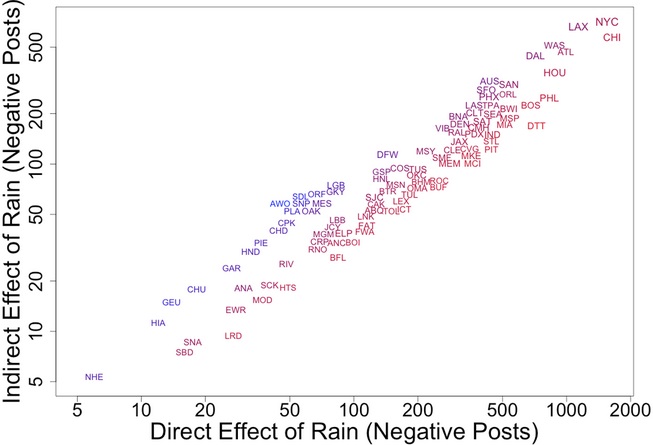Based on information gathered from millions of social media users, emotions can be transferred or affect other users in the same social media sphere. This is according to a study conducted by the?University of California, San Diego and Yale University?titled "Detecting Emotional Contagion in Massive Social Networks."
There are significant connections online where people feel happy, lonely or depressed at the same time. There may be two reasons why emotions are passed on from one person to the next on sites like Facebook.The first is contagion where people who post a status or tweet can directly affect the emotions of others who read their emotional statement. The second is homophily in which social media users tend to choose and add social media friends or contacts who share the same emotions with them.
The study created a mathematical formula to show how emotional expressions can be influenced in social media networks. Particularly, rainfall was used as an instrument to determine how contagion can influence emotions. Since rainfall cannot be influenced by human emotions, it adequately presents the changes in emotions among social media users and not vice-versa. Rain-induced changes were introduced to predict and reveal changes in social media users? emotions as reflected in their status messages.
 Total number of negative posts generated by a day of rainfall within a city (direct) and in other cities via contagion (indirect). Blue colors indicate higher indirect/direct effect ratio. Larger labels indicate larger population. Source PLOS One
The information was gathered for a period of 1,180 days from Facebook users. Status updates or posts were used to determine positive or negative emotions. Particular text or words would describe the post as either positive or negative. It is, however, possible for some posts to be both positive and negative at the same time, showing mixed emotions, so users are given scores for both emotions. The study was limited to Facebook users who live in the 100 most populous cities in the United States.
The researchers concluded that the emotions of users on social media can directly affect or influence the emotions of others. The average rainy day lowered the total number of positive posts by 1.19 percent while negative posts rose by 1.16 percent. More Facebook users were also found to be happy on weekends and holidays.
Total number of negative posts generated by a day of rainfall within a city (direct) and in other cities via contagion (indirect). Blue colors indicate higher indirect/direct effect ratio. Larger labels indicate larger population. Source PLOS One
The information was gathered for a period of 1,180 days from Facebook users. Status updates or posts were used to determine positive or negative emotions. Particular text or words would describe the post as either positive or negative. It is, however, possible for some posts to be both positive and negative at the same time, showing mixed emotions, so users are given scores for both emotions. The study was limited to Facebook users who live in the 100 most populous cities in the United States.
The researchers concluded that the emotions of users on social media can directly affect or influence the emotions of others. The average rainy day lowered the total number of positive posts by 1.19 percent while negative posts rose by 1.16 percent. More Facebook users were also found to be happy on weekends and holidays.
 Total number of negative posts generated by a day of rainfall within a city (direct) and in other cities via contagion (indirect). Blue colors indicate higher indirect/direct effect ratio. Larger labels indicate larger population. Source PLOS One
Total number of negative posts generated by a day of rainfall within a city (direct) and in other cities via contagion (indirect). Blue colors indicate higher indirect/direct effect ratio. Larger labels indicate larger population. Source PLOS One


